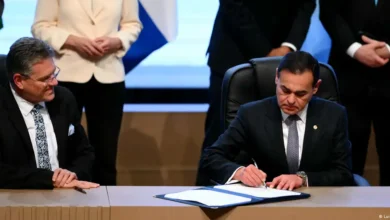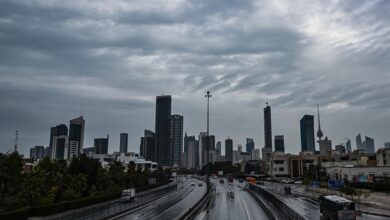Moody’s affirms Kuwait’s A1 sovereign credit rating with stable outlook
The affirmation by the international rating agency is attributed to Kuwait’s robust economic strength, substantial financial reserves, and minimal government debt.

• Kuwait’s credit strength corresponds to the lack of progress on reforms that would reduce the economy and public finances’ exposure to global oil market volatility, as well as the risks associated with long-term carbon reduction policies and energy transformation, Moody’s said.
Moody’s international agency has confirmed Kuwait’s sovereign credit rating at ‘A1,’ maintaining a stable outlook. This affirmation is attributed to Kuwait’s robust economic strength, substantial financial reserves, and minimal government debt.
In a statement published on the Central Bank of Kuwait’s website, Moody’s highlighted that Kuwait’s credit rating reflects the enduring strength of its balance sheet and financial outlook. This is coupled with the country’s commitment to sustaining macroeconomic stability and strong external balances.
The rating agency added that the state’s credit strength corresponds to the lack of progress on reforms that would reduce the economy and public finances’ exposure to global oil market volatility, as well as the risks associated with long-term carbon reduction policies and energy transformation. This reflects the continuation of institutional constraints, along with a stable outlook for risk balance.
Regarding general budget developments, the agency expects the general budget’s performance and financial reserves to remain strong in the foreseeable future. This enhances the state’s sovereign credit rating strength, noting the economy’s exposure to global oil market fluctuations and long-term energy transformation policy risks.
It also predicted that financial assets would remain at high levels over the coming years, as the volume of assets in the Future Generations Fund exceeds 400 percent of gross domestic product (GDP) by the end of 2023, which is among the highest for countries rated by the agency.
Moody’s pointed out that the volume of assets in the Future Generations Fund will continue to grow due to the high prices of global assets and the absence of a mechanism enabling the transfer of those assets to the state budget or the General Reserve Fund.
It confirmed that public debt levels remained low, at less than about 3 percent of GDP at the end of the fiscal year 2023/2024, which is among the lowest in the world, partly due to the expiration of the Public Debt Act in 2017.
Kuwait’s substantial stock of foreign assets reduces risk of external weakness
The agency explained that if a new public debt law passes allowing the government to borrow, it would result in a high debt burden. The state budget is expected to record a deficit of about four to seven percent of GDP during the fiscal years (2024-2027).
Regarding the exchange rate system and monetary policy, Moody’s reported that Kuwait’s substantial stock of foreign assets significantly reduces the risk of external weakness. This support comes from the credibility of the policy linking the dinar exchange rate to the basket system and countering speculation on the Kuwaiti dinar, even during periods of low oil prices.
The agency pointed out that the Bank of Kuwait’s monetary policy arrangements, which rely on the dinar exchange rate system linked to a basket of currencies, provide an effective pillar for maintaining price stability and reducing inflation fluctuations.
Regarding Kuwait’s economic diversification, Moody’s consider Kuwait as one of the most dependent countries on the oil and gas sector. The oil sector constitutes more than 90 percent of the country’s exports and public revenues, exposing it to risks from fluctuations in global oil prices and potential long-term risks associated with carbon reduction policies and energy transformation.
Regarding the justifications for the stable future outlook for the credit rating, the agency pointed out that it might raise the rating in the future if economic and financial reforms aimed at reducing the government’s dependence on oil revenues are implemented. This would increase the credit rating’s flexibility in facing the risks associated with oil price fluctuations and long-term shifts away from oil.
The agency also mentioned that an increase in the pace of project implementation could encourage economic diversification, particularly in industries where the state has shown potential, such as transport, logistics, petrochemicals, data centers, and certain renewable energy sources.
Moody’s reports stated that delaying financial and economic reforms could lower the credit rating. Additionally, there is a risk of weak global demand or a rapid global shift away from oil, leading to a subsequent decline in oil demand and prices.
The foundation of the setup includes:
- The robustness of the general budget.
- Economic and credit strength.
- Substantial financial wealth.
- Extremely low government debt.
- A vast reserve of foreign assets.
- Strong financial safeguards for the foreseeable future.
- Macro-economic stabilization and external balances.
- The dinar exchange policy serving as an effective pillar for price stabilization.
Weaknesses
Lack of progress on energy shift policy reforms risks continued institutional constraints and exposure to oil market volatility.
Agency expectations
- Continued performance of the general budget
- Sustained strength of financial reserves
- Maintenance of financial assets at high levels
- ‘Generations’ assets exceeding 400 percent of GDP
- Preservation of public debt at low levels
- Potential rating upgrade with implemented reforms, or downgrade if not
- Growth in Future Generations Fund assets
- Kuwait’s substantial foreign asset reserves reducing external vulnerability
- Faster project implementation encouraging economic diversification in transportation, services, and petrochemical sectors.












